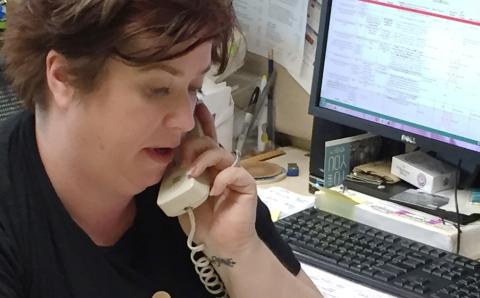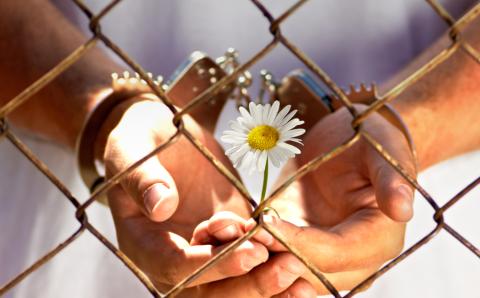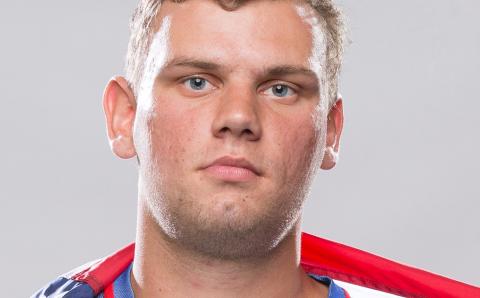My 4-year-old daughter, Zoe, ran into the house after school, breathless and eager to tell me about her day. She stood in front of me in the living room with her hands on her hips and rushed through the details of what this boy did and what that girl did. She ended her story with an exasperated sigh: “Mommy, I had no peace all day long!” I laughed and hugged her. A single story has the power to make us run, to take our breath away, to bring laughter and light to an otherwise grey afternoon.
A single story can also be dangerous. I recently heard the Nigerian author Chimamanda Adichie deliver a TED talk entitled “The Danger of a Single Story.” She spoke of coming to study in the United States. Adichie’s university roommate had a single story about Africa, a single story of catastrophe. “She had felt sorry for me even before she saw me. She had a default position toward me as an African. It was a kind of patronizing, well-meaning pity. In this single story there was no possibility of Africans being similar to her in any way—no possibility of feelings more complex than pity, no possibility of a connection as human equals.” Adichie admitted that she had a single story about people from Mexico. When she actually visited Mexico, her single story was challenged. “The consequence of the single story is this,” Adichie said. “It robs people of dignity. It makes our recognition of our equal humanity difficult. It emphasizes how we are different rather than how we are similar.”
The Christian Reformed Church of North America (CRCNA) is filled with many stories. But when we are considering the position or the perspective of someone with whom we disagree, we may be tempted to view the other through the lens of a single story—one that neatly and efficiently fits the other into the boxes of our stereotypes and assumptions. I know I do this. All too often.
Because there are relatively few women in ordained ministry in the CRCNA, it may be that some of you have a single story about what we are like. Ironically, perhaps, the best way to confront the danger of an overarching and stereotyping single story is to listen deeply to the real and multifaceted story of another. Here is my story.
What If?
On March 5, 1994, my dad and I went to see a production of Hamlet at Western Washington University. We were celebrating his 44th birthday. On the way home, my dad, a Christian Reformed minister himself, asked me if I had ever thought about going into the ministry. I had not. What if God was calling me to ministry? Could God even do that? I did not know. I was 17 years old. No women had yet been ordained in the CRCNA. I had never heard a woman preach. I had never met a female pastor. The story of women in ordained ministry was not a story with which I was familiar.
I remember looking out the window as we drove and thinking about all the things I loved doing: writing and studying, singing and playing piano; speaking and listening; spending time with God and with all kinds of people. What other career could embrace all of this? There was no other.
After graduating from Lynden Christian High School, I attended Dordt College, studying philosophy and psychology. Upon graduating in 1999, I married Layton DeVries, a young man from Pella, Iowa. A music teacher and a budding singer/songwriter, he surprised me on our wedding day with a song he had written: “You encourage my goals when I am full of doubt. You love me through my faults, that’s what love’s all about. You love me even though my hair’s all falling out! You’re the inspiration for all my dreams. We’ll walk through life hand in hand, together. Oh my Heidi, Heidi, Hi, I love you forever.” We had the beginnings of a great story.
A year after we got married, we moved to Grand Rapids so that I could begin my studies at Calvin Theological Seminary. Our walk through life together was cut short on a cold December morning. Black ice, a curve in the road, and a pickup truck ended Layton’s story in this life.
The students, faculty, and staff of Calvin Seminary became like family to me. They listened to my story in classes and hallways, over coffee and meals, through assignments and sermons. They gently stewarded my story of loss and heartily rejoiced with me when a story of new love surfaced. Fellow seminarian Tim De Jonge and I were married in the Calvin College chapel in August of 2002, a wedding witnessed by dozens of pastors and pastors-to-be.
Accepting the Call
My first ordained ministry position was at Calvin Seminary, where I served as the pastor for discernment and as a pastor to the female students. Professor emeritus Ron Nydam gave me some welcome counsel as I prepared to minister in the school that had trained and shaped me. He told me that I would need to learn to be empathetic to the stories of the women at the seminary who didn’t have such a positive experience there. My conviction that Calvin Seminary was safe and loving was just that, my conviction, based on my experiences. In order for me to pastor there, I needed to make room for other experiences and convictions.
From this I learned that a single positive story can hinder us and our relationships to others as much as a single negative story. If I were to have expected that other women would or should experience the seminary (or the denomination) as a safe context within which to learn and serve, I would not have left room for their stories. Ron’s words taught me to leave room and make room for the stories of others.
On December 11, 2006, Tim and I learned that our 3-month-old daughter, Samara, had neuroblastoma, a solid tumor childhood cancer. We found ourselves checking into the Helen DeVos Children’s Hospital on the sixth anniversary of Layton’s death on that same hospital campus. Samara’s fight with cancer was short and triumphant. She was declared cancer-free when she was 7 months old and has been so ever since.
The seminary community stewarded Samara’s cancer story as well and rejoiced with me when Tim and I became pregnant again.
I interviewed for my first position in a parish on Mother’s Day of 2008, eight months pregnant with my second daughter. The Celebration congregation of Harderwyk CRC—and Tim and I—were all a little bit nervous and curious. What were we on the verge of? The Christian Reformed Church had been ordaining women for over 10 years at that point, but Classis Holland had never had a full-time female preaching pastor. We were all doing something new and difficult. They extended the call, and I accepted it.
Finding Room
I have often wondered if my stories of being a young widow and parenting a child through cancer were significant factors in the story of my receiving and accepting calls into parish ministry. The simple fact that I had been through these difficult things may have given me a certain kind of credibility in the eyes of those who wondered if a young mom could ever pastor a congregation. It is also possible that going through these difficult things gave me the confidence I needed to pursue parish ministry. I knew that I could do hard things in the strength of the Lord.
I have now become a mom to three daughters and have pastored two congregations: Harderwyk CRC in Holland, Mich., (2008-2012) and Westside Fellowship CRC in Kingston, Ont., (2012-present). Though Layton’s death and Samara’s cancer have certainly given me connecting points to others who are walking through valleys and shadows, I am finding more room in myself—and, more important, more room in the heart of God—to steward the many stories of others. Stories of heartbreak, loss, and fear; stories of anger, resentment, and depression; stories of injustice, oppression, and marginalization; as well as stories of joy, fulfillment, and gratitude.
The important thing is to take the time to listen to the stories so that we do not reduce the other person to the single story we carry around about “people like them.”
If you are like me, you know lots of stories of women serving well in ordained ministry in the Christian Reformed Church. But not so many real and multifaceted stories of people who maintain that women’s ordination is not supported by Scripture. If you are not like me in this respect, the story scales might tip the other direction.
I have been learning to ask myself a series of questions. What single stories am I telling myself or others about which groups of people? How many real stories do I know about people who are, for example, immigrants, refugees, or aboriginal; gay, straight, or transgender; poor or rich; conservative or liberal; progressive or traditionalist; old, young, or teens? How could I hear or learn more stories? Am I willing to hear those stories?
Chimamanda Adichie says that “the single story creates stereotypes and the problem with stereotypes is not that they are untrue, but that they are incomplete.” We must take the time to complete the picture, or at least to gain a more complete picture. We must take time to listen. We must make time to listen. A strong reason that I (sinfully) prefer a stereotyping single story over a multifaceted single story is that I over-value efficiency, and I am selfish with my time. It takes time to listen well to the many stories of another person, or to listen deeply to the many stories of a country, a city, or a neighborhood.
But it is always time well spent. Because in the listening and learning, we recognize the ways that we are like the other person, we recognize the God-given dignity of the other person, and we get to know God better.
My congregation took on a guiding vision this past January: “As we abide in our authentic relationship with God, we will make Westside Fellowship CRC a safe and authentic community, speaking our truths [or stories!] in love and listening with love to the truths [or the stories] of others, including those of our surrounding community.” This is also my hope for us as a denomination. Perhaps one day our synod gathering will include even more storytelling time: stories of the positive and amazing work that our denomination is doing all around the world, certainly, but also the stories of those who have not found our denomination a gracious place to minister or to live.
A single story can be powerful. A single story can be dangerous. A single story can open the doorway to the many stories that make up a person or a community. At the end of the day, a single story does unite us. Herman Bavinck summarizes this Story so well: “God the Father has reconciled His created but fallen world through the death of His Son, and renews it into a Kingdom of God by His Spirit.”
This is the Story that brings the most laughter and light to all of our grey. This is the Story that takes our breath away and promises new breath, even after we have taken our last breath in this life. This is the Story that gives us strength to run the race marked out for us, fixing our eyes on Jesus, the author and perfecter of all our stories.
About the Author
Heidi S. De Jonge is the pastor of Westside Fellowship CRC in Kingston, Ont., She enjoys cycling, cake decorating, and digital scrapbooking. She and her husband have three young daughters.









